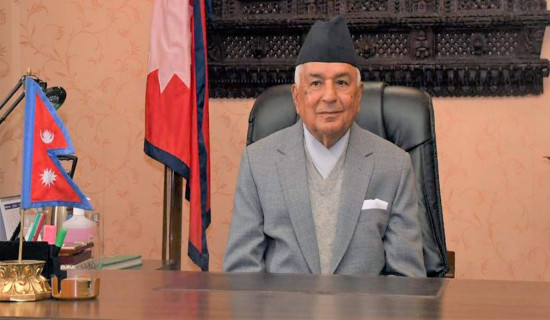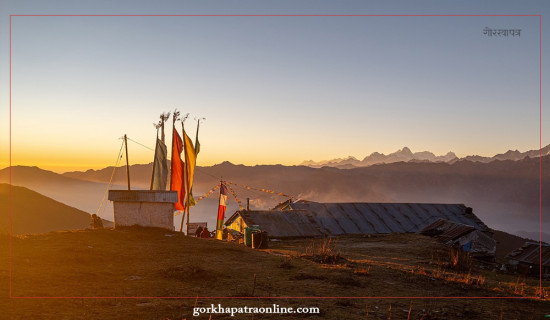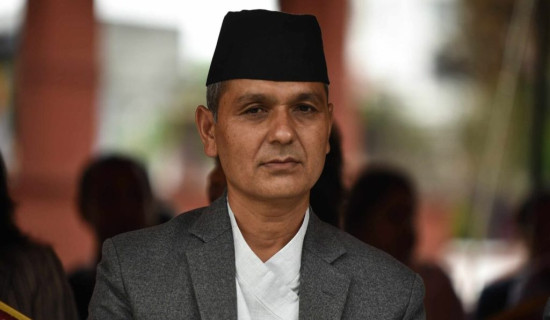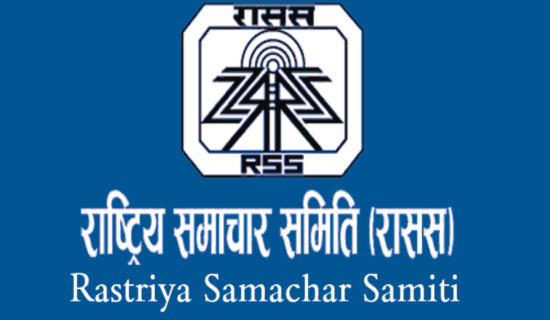- Thursday, 19 February 2026
Fighting Fake News For Fair Polls
The emergence of social media is perhaps the most defining characteristic of the digital era. As the social media, also known as new media, has become the powerful means of fast communication and connectivity among the people, every sphere of human activity has come under its impact. So is the political realm. Political parties and their leaders have found social networking sites (SNS) as an effective tool to inform, express and propagate their views and agenda amid the masses. They have become viable platforms to vigorously launch new and radical ideas and draw feedback from the public while allowing diverse voices to be heard across the political spectrum.
While some hail SNS for their role in expanding democratic space through the increased participation of people in the political debates, there is no dearth of experts who see social sites as a threat to democracy. They argue that social sites are prone to aggressive, emotionally charged and conflict-ridden content, which negate the scope for rational deliberations on the public issues concerning the larger segment of population. Their strength to spread the false, fake and damaging information at a warp speed has become a matter of serious concern for anyone. When the anger, bias and hate are masked as news, there are reasons to cast doubt on their reliability.
Handy medium
No matter whether social sites are used for creative or destructive purposes, they are indispensable to pass one’s message and interact with mass audience in this globalised world. For politicians, social media comes in handy to mobilise their followers in no time. During the major political events like party convention or elections, the political parties and their leaders hardly miss a chance to make optimal use of social sites for their advantage. Former US president Donald Trump can be cited as the best example from among the contemporary leaders in channelising the social networking sites, especially Twitter, to rally his millions of followers in election or instigate them into attacking the Capitol Building when he lost presidential bid in 2020.
During the recently held local elections, many candidates tried to woo voters through the social media. Sensational victory of Balen Shah as the Mayor of Kathmandu Metropolitan City has been largely attributed to the skilful manoeuvring of social media that has a huge impact on the urban populace. Balen employed a team of competent technical hands to utilise social media in order to drum up support of youths as well as those who were fed up with the old guards. However, this positive side of social media is often overshadowed by distortions, misinformation and even character assassination that party workers resort to psych their adversaries out during the heated poll campaign.
Abusers have many ways to misuse the power of social media for narrow personal or partisan gains. Party functionaries disguise themselves as ordinary folks to extol their candidates and revile the rival contesters. Their leaders may also involve their cadres to conduct the fake online survey to tip the scales against the opponents. Trolling and cyber bullying are other internet ills which pester and harass the innocent people. Trolling is a kind of internet harassment in which a troll posts insulting messages in the social sites to provoke or confuse the intended persons. If the targeted persons are political figures, they are likely to make emotional outburst that can eventually damage their reputation in the public.
As Nepal is set for federal and provincial elections next month, candidates and their parties have found social sites as cost-effective platforms to swiftly convey their message to their voters. At the same time, these popular sites are also awash with the negative comments against the rival leaders and contestants. This has worried the Election Commission Nepal entrusted with the gargantuan task of holding the elections in a free and fair atmosphere. The election authority is making every effort to ensure that social site users also adhere to the election code of conduct and do not instrumentalise social media to generate and spread misinformation, disinformation and hate speech for such a malpractice impairs voters’ decision-making ability and perception of candidates.
EC’s initiative
It is beyond the jurisdiction of EC to regulate the social sites such as Facebook, Twitter and TikTok as they are supra-national entities and are not subject to national laws other than the laws of the countries where they are stationed. The EC has approached Facebook, Twitter, Google and TikTok, seeking their cooperation in curbing the fake news and distorted information about the candidates and their parties during the poll campaign. A team of Meta Platforms, Inc, the parent organisation that owns Facebook, Instagram WhatsApp and Messenger, has come to Nepal and expressed commitment to control the disinformation and hate speech based on its own policy if it receives complaints against such objectionable content. Meta also conducted a conference on ‘Election Integrity’ and training for the journalists on checking fake news and harmful content. This is indeed positive initiative in the direction of holding polls in a fair and free manner.
Social media has a potential to disseminate false consciousness, depriving the voters of taking informed decision during the polls. Fake and fabricated news and views can also trigger hostility among the parties, spoiling the environment for fair election. The common people lack necessary knowledge and tools to sift truth from rumours. This calls for a credible and powerful oversight agency to control the distorted information and identify cyber fraudsters. Moreover, people should be educated and encouraged for promoting social sites as creative, inclusive and participatory platforms for reasoned debates on the key public policies and national narratives, thereby protecting citizens’ freedom and consolidating democratic polity.
(The author is Deputy Executive Editor of this daily.)
















